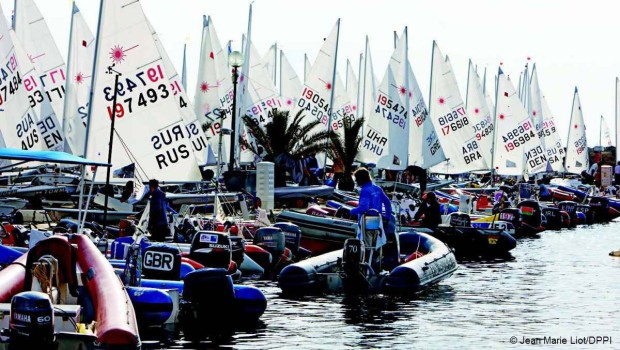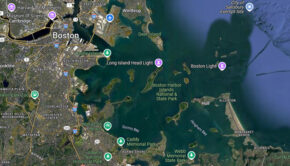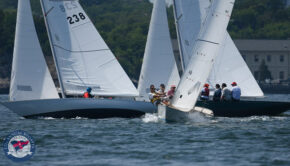Pros and Sailing: Thirty Years Later
Published on January 12th, 2016
by Craig Leweck, Scuttlebutt
I was 24 years old, and had been working as a one design sailmaker for three years when Sailing World published their 1986 interview with Dave Ullman titled, Get the Pros Out of Racing. I had grown up idolizing Dave, but now that he had turned 40, and was advocating that pros be limited from competition, I figured he wasn’t too eager to keep grinding away every weekend. I was.
However, he was seeing a lot more than I was. The sport had already begun shrinking, with many contributing reasons, but certainly chief among them is the heightening level of competition. The commitment and cost to enjoy sailboat racing as a recreation had exceeded what people could tolerate, and as Dave mentions in that interview, the pros were contributing to this trend.
Thirty years later, there are people that lived through this shift, and likely more people now that only know the current reality. However, that reality certainly depends on the type of sailing people do, and where they do it. Some people see no impact, while others are immersed in it.
In dinghy one design classes, the pro sailors are typically sailmakers, and they tend to steer their own boats and are part of the class community. The better ones give as much as they take. The scene escalates in keelboat one design classes, as in addition to sailmakers, some amateur skippers are paying to have an elite crew. That has raised the cost to compete. As for keelboat handicap, it was expensive 30 years ago and has only escalated with time.
And in all levels of the sport, there is more coaching. While this can be seen as a benefit, it has also added cost to the game.
One of Dave’s points was about how the pros were pushing for design advancements. While many of these advancements have been beneficial, there are few that have made the sport cheaper. Additionally, the boats are now more technical, requiring more skills, which has helped to spur the need for expert crew that now ask to be paid.
In areas where people have seen the impact of professionalism in the sport, they need only look at the leadership in those areas. That was Dave’s plea in the interview, stating that rules were needed. “It cannot be on a voluntary basis, because people won’t do it on their honor. I’m not saying that this is the whole problem with the sport, but I think that the USYRU (now US Sailing) and the powers that be in the sport must face up to the fact that yacht racing is in a nose dive.”
Thirty years later, the landscape is now different, but Dave’s message remains largely intact. Harnessing the elements that inflate cost and complexity will help people enjoy their sport, which then will hopefully spur growth.








 We’ll keep your information safe.
We’ll keep your information safe.